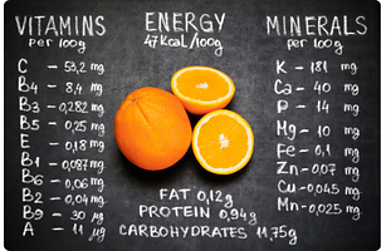
I’m going to kick things off by talking about something vital for your furry friend’s well-being: their joint health. This isn’t just about assuring they can jump and play today; it’s also about their comfort and mobility in the long run. Joint health is crucial for dogs of all ages – yes, even the youthful, spry puppies who seem invincible.
Common joint issues that canines face range from temporary stiffness to more chronic conditions like arthritis. Dogs aren’t great at sending us memos about their aches and pains, but if you notice them limping, hesitating to climb stairs, or showing less interest in play, they might be trying to tell you their joints need some TLC.
What many don’t realize is how diet and regular, appropriate exercise influence the health of a dog’s joints. A balanced diet rich in certain nutrients can provide the building blocks for strong joints, while regular, low-impact exercise like swimming can maintain them without adding stress.
In the following section, I’m here to help you with a deeper dive into the natural supplements and dietary choices that can support your dog’s joints from the inside out. It’s about adding the right stuff to their routine to keep those tails wagging and paws prancing.
Exploring Natural Supplements for Joint Care in Dogs
When it comes to easing your furry friend’s joint discomfort, natural supplements are often a go-to solution. These supplements can work alongside a healthy lifestyle to maintain or improve joint health. Let’s take a closer look.
Glucosamine and Chondroitin are the dynamic duo in the world of joint supplements. They’re natural substances found in the body that help repair cartilage and maintain joint lubrication. Over time, production of these compounds can decline, which is where supplementation comes in handy.
Next up, we have Omega-3 fatty acids. Famous for their anti-inflammatory properties, these acids, particularly EPA and DHA, are essential in managing joint inflammation and pain. Fish oil supplements are a great source, but you can also opt for natural sources like flaxseed or chia seeds.
Turmeric is more than just a spice; it contains curcumin, which may relieve joint pain due to its anti-inflammatory qualities. Meanwhile, Methylsulfonylmethane (MSM) is believed to enhance joint flexibility and decrease pain and inflammation.
Remember, it’s not just about what comes out of a bottle. Integrating natural foods into your dog’s diet, such as blueberries, spinach, and sweet potatoes, can promote joint health due to their antioxidant content.
Although these natural substances can support joint health, it’s crucial to know that they aren’t instant fixes. Regular use under veterinary guidance can yield the best results. Moreover, each dog is unique, so what works for one may not work for another.
Vitamins and Minerals: Micronutrient Support for Your Dog’s Joints

Just like us, our furry companions need a symphony of vitamins and minerals to keep their bodies running smoothly. But you’re likely wondering which ones specifically support joint health.
Vitamin C isn’t just for warding off colds. In dogs, it acts as a powerful antioxidant that defends tissues from damage, including those in the joints. This isn’t just about protection; it’s also about enhancing the body’s ability to repair itself.
Then there’s Vitamin E, which isn’t talked about as much but is just as critical. It’s fighting the same good fight against those pesky free radicals that threaten your dog’s joint health. Plus, it’s essential for effective functioning of muscles, which play a supporting role to joints.
Now, you can’t mention strong bones without talking about Calcium and Phosphorus. These minerals are the building blocks of a robust skeletal system, helping to keep those joints anchored properly.
And let’s not forget about Vitamin D. It’s crucial, especially for absorbing Calcium. Without it, that all-important bone mineral can’t do its job effectively, leaving bones and joints in a bind.
So you might be pondering, do you opt for a well-balanced diet or hit the supplement aisle? My take? A balanced diet is the best first step. It often provides sufficient levels of these nutrients, but there are cases when a supplement could be beneficial, especially for dogs with specific deficiencies or increased nutritional needs.
But before you start your dog on any supplement, it’s a smart move to have a chat with your vet. They’re the experts and can guide you based on your dog’s unique profile.
Other Joint Care Options: When Supplements Aren’t Enough
Even with the best diet and supplements, some dogs might need additional help with their joint health. If you’ve maximized natural supplements and appropriate nutrition, and your dog is still showing signs of discomfort, it’s crucial to consult with a veterinarian. They can diagnose the issue accurately and recommend the best course of action, which may include medical treatments like anti-inflammatories, pain relievers, or even surgery in severe cases.

Physical therapy can be a game-changer for many dogs with joint issues. Certified canine rehabilitation therapists can design a program tailored to your dog’s needs, helping to alleviate pain and improve mobility. Hydrotherapy, in particular, is excellent for low-impact exercise that can strengthen muscles without putting additional strain on the joints.
Don’t underestimate the importance of a comfortable living environment. Orthopedic dog beds, ramps instead of stairs, and keeping your home’s floors slip-free are all ways you can ease your dog’s joint pain on a daily basis.
Remember, a holistic approach to your dog’s health is vital. Regular check-ups, a consistent routine, weight management, and a loving, supportive environment are as important as any supplement. And while your dog might not be able to thank you in words, the bounce in their step will show you just how much they appreciate your care.
We have a Golden Retriever named Lucy, so the thought of hip dysplasia is always on our minds and we are constantly on the look out for any changes in our four legged family member.
We hope this information helped out with your search for good health for our furry companions.
As always, feel free to leave any comments or questions you may have below.
